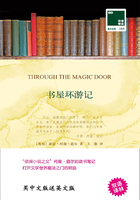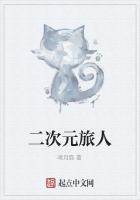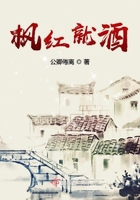Charlotte Bronte
夏洛蒂.勃朗特(Charlotte Bronte,1816—1855年),英国文学史上最著名的姊妹作家之一,《简·爱》为她赢得世界性的声誉,马克思称她是“以狄更斯为首的出色的一派”。小说作品还有《雪莉》、《维莱特》、《教师》等。她的小说最突出的主题就是女性要求独立自主的强烈愿望,这一主题的表现在英国文学史上她是第一人。后代作家在处理女性主题时,都不同程度地受到她的影响,特别是关注女性命运问题的女作家们,更是尊她为先驱,并把她的作品看做是“现代女性小说”的楷模。遗憾的是,才艺出众的夏洛蒂英年早逝,年仅39岁。
There was no possibility of taking a walk that day.We had beenWandering。inked,in the leafless shrubbery an hour in the morning;butsince dinner(Mrs.Reed,when there was no company,dined early)thecold winter wind had brought with it clouds SO sombre,and a rain SO pen_etrating.that further outdoor exercise was now out of the question.1 was glad of it:I never liked long walks,especially on chilly afternoons:dread—ful t0 me was the coming home in the raw twilight,with nipped fingers and tOes.and a heart saddened by the chidings of Bessie,the nurse,and humbled by the consciousness of my physical inferiority tO Eliza,John,and Georgiana Reed.The said Eliza,John,and Georgiana were now clus—teI.ed round their mama in the drawing—room:she lay reclined on a sofaby the fireside,and with her darlings about her(for the time neither quar—relling nor crying)looked perfectly happy.Me,she had dispensed from joining the group;saying,“She regretted tO be under the necessity of keeping me at a distance;but that until she heard from Bessie,and could discover by her own observation,that 1 was endeavouring in good earnest to acquire a more sociable and childlike disposition,a more attractive and sprightly manner—something lighter,franker,more natural,as it were—she really must exclude me from privileges intended only for contented,happy,little children.’’
“What does Bessie say I have done?”I asked.
“Jane,I don’t like cavillers or questioners;besides,there is some—thing truly forbidding in a child taking up her elders in that manner.Be seated somewhere;and until you can speak pleasantly,remain silent.”
A small breakfast—room adjoined the drawing—room,I slipped inthere.It contNned a bookcase:I soon possessed myself of a volume,tak—ing care that it should be one stored with pictures.I mounted into thewindow—seat:gathering up my feet,I sat cross—legged,like a Turk;and,having drawn the red moreen curtain nearly close,1 was shrined indouble retirement.Folds of scarlet drapery shut in my view to the righthand;to the left were the clear panes of glass,protecting,but not separa一|ting me from the drear November day.At intervals,while turning over theleaves of my book,I studied the aspect of that winter aflemoon.Afar,itoffered a pale blank of mist and cloud;near a scene of wet lawn andstorm—beat shrub,with ceaseless rain sweeping away wildly before along and lamentable blast.I returned tO my book--Bewick’S History ofBritish Birds:the letterpress thereof I cared little for,generally speaking; and yet there were certain introductory pages that,child as 1 was could|not pass quite as a blank.They were those which treat of the haunts of sea—fowl;of the solitary rocks and promontories by them only inhabited;ofthe coast of Norway,studded with isles from its southern extremity,theLindeness,or Naze,to the North Cape Where the Northern Ocean,in vastwhirls,Boils round the naked,melancholy isles of farthest Tbule;and theAtlantic surge Pours in among the stormy Hebrides.Nor could I pass un—noticed the suggestion of the bleak shores of Lapland,Siberia,Spitzber—gen,Nova Zembla,Iceland,Greenland,with the vast sweep of the ArcticZone,and those forlorn regions of dreary space,一that reservoir of frostand snow,where firm fields of ice,the accumulation of centuries of win—ters,glazed in Alpine heights above heights,surround the pole and con—centre the multiplied rigours of extreme cold.Of these death—whiterealms I formed an idea of my own:shadowy,like all the half—compre—hended notions that float dim through children’S brains,but strangely im—pressive.The words in these introductory pages connected themselveswith the succeeding vignettes,and gave significance to the rock standingup alone in a sea of billow and spray;to the broken boat stranded on adesolate coast;tO the cold and ghastly moon glancing through bars ofcloud at a wreck just sinking.
I cannot tell what sentiment haunted the quite solitary churchyard,with its inscribed headstone;its gate,its two trees,its low horizon,girdledby a broken wall,and its newly—risen crescent,attesting the hour of e—ventide.The two ships becalmed on a torpid sea,I believed to be marinephantoms.The fiend pinning down the thief’S pack behind him,I passedover quickly:it was an object of terror.So was the black homed thing seated aloof on a rock,surveying a distant crowd surrounding a gallows.Each picture told a story;mysterious often to my undeveloped under—standing and imperfect feelings,yet ever profoundly interesting:as inter—esting as the tales Bessie sometimes narrated on winter evenings,when she chanced to be in good humour;and when,having brought her ironing—table to the nursery hearth,she allowed US to sit about it,and while she got up Mrs.Reed’S lace frills,and crimped her nightcap borders,fed our eager attention with passages of love and adventure taken from old fairy tales and other ballads;or(as at a later period I discovered)from the pa—ges of Pamela,and Henry,Earl of Moreland.With Bewick on my knee,1 was then happy:happy at least in my way.I feared nothing but interrup—tion,and that came too soon.The breakfast—room door opened.
“Boh!Madam Mope!”cried the voice of John Reed:then he paused:he found the room apparently empty.
“Where the dickens is sher he continued.“Lizzy!Georgy!(call—ing to his sisters)Joan is not here:tell mama she is run out into the rain bad animal!”
“It is well I drew the curtain,”thought I;and 1 wished fervently he might not discover my hiding—place:nor would John Reed have found it out himself;he was not quick either of vision or conception;but Eliza justi put her head in at the door。and said at once.“She iS in the window—seat,to be sure,Jack.’’
And I came out immediately,for I trembled at the idea of being dragged forth by the said Jack.
“What do you want?”I asked,with awkward diffidence.















